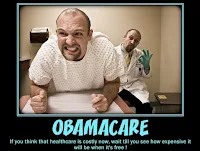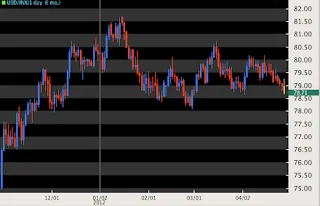So says Peter Morici, quoted here by Elizabeth MacDonald at Fox Business:
“Some 80% of the reduction” in the unemployment rate from 10% hit in October 2009 to today’s 8.2% “has been from adults quitting the labor force,” says economist Peter Morici.
Morici adds the unemployment rate “rises to 14.5% if you factor back in those who’ve stopped looking for work but would re-enter if there were jobs, as well as part-time workers who would prefer full-time positions.” ...
The U.S. economy is creating jobs, but it is struggling, adding jobs at a rate of just 131,000 a month in 2011, which is not enough to reduce the unemployment rate.
Morici says the U.S. economy “must add 13 million jobs over the next three years -- 362,000 each month -- to bring unemployment down to 6%. GDP would have to increase at a 4% to 5% pace.”
So there you have it.
Since when does a nation’s labor force shrink during a recovery? It should not shrink, it should grow in a recovery.

























